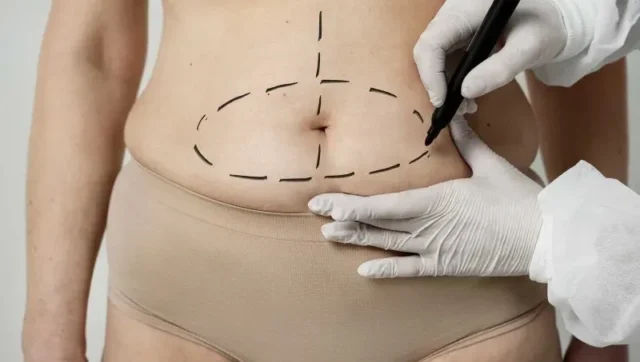Considering weight loss surgery in Turkey? With its rising reputation as a prime destination for medical tourism, Turkey offers a blend of affordable treatments and skilled practitioners. But how safe is weight loss surgery in this vibrant country? In this comprehensive guide, we’ll explore the potential risks and benefits associated with these procedures. From gastric bypass to sleeve gastrectomy, understanding what to expect can help you make an informed decision on your journey towards a healthier life. Additionally, we’ll delve into real patient results that showcase the transformative power of weight loss surgery. Join us as we uncover the crucial insights you need to navigate this life-changing option, ensuring you’re well-prepared for every step along the way. Whether you’re seeking effective solutions for obesity or looking to boost your confidence, our exploration will illuminate the path to a new you.
How Safe Is Weight Loss Surgery in Turkey? Risks, Benefits, and Real Results
Understanding Weight Loss Surgery: Types and Procedures
Weight loss surgery, also known as bariatric surgery, encompasses a variety of procedures designed to help individuals lose weight by altering their digestive system. These surgical interventions are typically considered when diet and exercise have not been effective for achieving significant weight loss, or when patients are facing serious health issues due to obesity. The most common types of weight loss surgeries include gastric bypass, sleeve gastrectomy, adjustable gastric banding, and biliopancreatic diversion with duodenal switch (BPD/DS). Each procedure has its own unique approach to limiting food intake and/or nutrient absorption, which can lead to substantial weight loss.
Gastric bypass, also known as Roux-en-Y gastric bypass, is one of the most frequently performed weight loss surgeries. This procedure involves creating a small pouch at the top of the stomach and connecting it directly to the small intestine, effectively bypassing a large portion of the stomach and the first segment of the small intestine. This process not only reduces the amount of food that can be consumed but also decreases the absorption of nutrients, leading to significant weight loss.
Sleeve gastrectomy, or gastric sleeve surgery, involves the removal of approximately 80% of the stomach, leaving a tube-like structure. This smaller stomach size limits the amount of food that can be consumed at one time and helps patients feel full more quickly. Unlike gastric bypass, sleeve gastrectomy does not alter the digestive tract or nutrient absorption. Adjustable gastric banding, another popular option, involves placing an inflatable band around the upper portion of the stomach to create a small pouch. This band can be adjusted to control the size of the pouch, thereby regulating food intake. Finally, the BPD/DS procedure combines elements of both restrictive and malabsorptive surgeries, making it one of the most complex but effective weight loss surgeries available.
The Benefits of Weight Loss Surgery
Weight loss surgery offers numerous benefits that extend beyond mere physical appearance. For individuals struggling with obesity, these procedures can be life-changing, leading to significant improvements in overall health and quality of life. One of the most immediate benefits of weight loss surgery is the substantial reduction in excess weight. Many patients experience a rapid and sustained weight loss, which can help alleviate the physical burden of carrying extra pounds and improve mobility.
In addition to weight loss, bariatric surgery has been shown to have a profound impact on obesity-related health conditions. Conditions such as type 2 diabetes, hypertension, sleep apnea, and heart disease often see dramatic improvements or complete remission following surgery. For instance, studies have indicated that patients with type 2 diabetes often experience normalization of blood sugar levels shortly after undergoing gastric bypass surgery, sometimes even before significant weight loss occurs. This can lead to a reduction or elimination of diabetes medications and a lower risk of diabetes-related complications.
Moreover, weight loss surgery can have a positive effect on mental and emotional well-being. Many individuals who undergo these procedures report an increase in self-esteem and confidence as they achieve their weight loss goals. This boost in self-perception can lead to better social interactions and a more active lifestyle. Additionally, the reduction in health-related anxiety and the ability to participate in activities that were previously challenging can contribute to an overall sense of happiness and satisfaction.
Evaluating the Risks Associated with Weight Loss Surgery
While the benefits of weight loss surgery are compelling, it is essential to consider the potential risks associated with these procedures. As with any major surgery, bariatric surgery carries inherent risks that need to be carefully weighed against the potential rewards. Some of the general risks associated with weight loss surgery include infection, blood clots, and adverse reactions to anesthesia. These complications can occur during or after the surgery and may require additional medical intervention.
Specific risks vary depending on the type of weight loss surgery performed. For instance, gastric bypass surgery has a risk of complications such as dumping syndrome, which occurs when food moves too quickly through the small intestine, leading to symptoms like nausea, vomiting, diarrhea, and dizziness. Nutritional deficiencies are also a concern, as the bypassed sections of the small intestine are responsible for absorbing essential nutrients. Patients may need to take lifelong vitamin and mineral supplements to prevent deficiencies.
Sleeve gastrectomy carries its own set of risks, including leakage from the stapled portion of the stomach and the potential for developing gastroesophageal reflux disease (GERD). Adjustable gastric banding has a risk of band slippage, erosion, and infection at the port site. BPD/DS, being the most complex procedure, has a higher risk of nutritional deficiencies and requires careful long-term monitoring. It is crucial for patients to understand these risks and discuss them thoroughly with their healthcare provider before deciding to undergo weight loss surgery.
Factors Influencing the Safety of Weight Loss Surgery in Turkey
When considering weight loss surgery in Turkey, several factors can influence the safety and success of the procedure. One of the most critical factors is the qualifications and experience of the surgeon performing the surgery. Turkey has gained a reputation for having highly skilled and experienced bariatric surgeons who have been trained in some of the best medical institutions around the world. However, it is essential for patients to conduct thorough research and choose a surgeon with a proven track record of successful outcomes.
The choice of the medical facility is another crucial factor. Turkey boasts numerous state-of-the-art hospitals and clinics that adhere to international standards of care. These facilities are often equipped with the latest medical technology and staffed by multidisciplinary teams of healthcare professionals. Accreditation by reputable organizations such as the Joint Commission International (JCI) can provide additional assurance of the quality and safety of the medical facility.
Patient preparation and post-operative care play significant roles in the overall safety and success of weight loss surgery. Comprehensive pre-operative evaluations, including medical history assessments and psychological screenings, help identify any potential risks and ensure that patients are suitable candidates for surgery. Post-operative care, including follow-up appointments, dietary guidance, and support groups, is essential for achieving optimal results and minimizing complications. Patients should be committed to adhering to their healthcare provider’s recommendations and making necessary lifestyle changes to ensure long-term success.
Choosing the Right Clinic: What to Look For
Selecting the right clinic for weight loss surgery in Turkey is a critical step in ensuring a safe and successful outcome. Patients should prioritize clinics that have a strong reputation for excellence in bariatric surgery and a high rate of successful procedures. Researching online reviews, patient testimonials, and before-and-after photos can provide valuable insights into the clinic’s performance and patient satisfaction.
Accreditation and certification are essential indicators of a clinic’s commitment to maintaining high standards of care. Clinics accredited by international organizations, such as the Joint Commission International (JCI) or the International Organization for Standardization (ISO), are more likely to adhere to rigorous safety and quality protocols. Additionally, clinics that are affiliated with reputable medical institutions or universities may offer an added layer of credibility.
The qualifications and experience of the surgical team are paramount. Patients should seek clinics that employ board-certified bariatric surgeons with extensive experience in performing the specific weight loss procedure they are considering. It is also beneficial to choose a clinic that offers a multidisciplinary approach, with a team of healthcare professionals, including dietitians, psychologists, and physical therapists, who can provide comprehensive care and support throughout the weight loss journey.
Real Patient Results: Success Stories and Testimonials
Hearing from real patients who have undergone weight loss surgery in Turkey can provide valuable insights and inspiration for those considering the procedure. Success stories and testimonials offer a glimpse into the transformative power of weight loss surgery and the positive impact it can have on individuals’ lives. Many patients report life-changing results, including significant weight loss, improved health, and enhanced quality of life.
For instance, one patient, Jane, shared her experience of undergoing sleeve gastrectomy in Turkey. Jane had struggled with obesity for years, and despite numerous attempts at dieting and exercising, she was unable to achieve lasting weight loss. After extensive research and consultations, she decided to undergo weight loss surgery in Turkey. Jane reported losing over 100 pounds within a year of the surgery and experiencing improvements in her overall health, including the remission of type 2 diabetes and hypertension. She also noted a boost in her self-confidence and the ability to engage in activities she previously found challenging.
Another patient, Mark, underwent gastric bypass surgery in Turkey and shared his remarkable journey. Mark had been battling obesity-related health issues, including sleep apnea and joint pain. Following the surgery, he lost a significant amount of weight and experienced the resolution of his sleep apnea and a reduction in joint pain. Mark emphasized the importance of adhering to the post-operative care plan, including dietary changes and regular exercise, to achieve and maintain long-term success. These real patient results highlight the potential benefits of weight loss surgery and the importance of choosing a reputable clinic and surgeon.
Post-Operative Care: Recovery and Lifestyle Changes
Recovery and post-operative care are crucial components of the weight loss surgery journey. The immediate recovery period varies depending on the type of surgery performed, but most patients can expect to spend a few days in the hospital for monitoring and initial recovery. During this time, healthcare providers will manage pain, monitor vital signs, and ensure that there are no complications from the surgery.
Once discharged from the hospital, patients must follow a specific post-operative care plan to ensure a smooth recovery and successful weight loss. This plan typically includes dietary guidelines, physical activity recommendations, and follow-up appointments with the surgical team. In the initial weeks after surgery, patients will need to adhere to a liquid or pureed diet before gradually transitioning to solid foods. It is essential to follow the dietary recommendations provided by the healthcare team to prevent complications and ensure proper nutrition.
Lifestyle changes are a critical aspect of long-term success following weight loss surgery. Patients must commit to adopting healthier eating habits, including consuming smaller portions, choosing nutrient-dense foods, and avoiding high-calorie, sugary, and fatty foods. Regular physical activity is also essential for maintaining weight loss and improving overall health. Patients may benefit from working with a dietitian and a physical therapist to develop a personalized plan that meets their specific needs and goals. Support groups and counseling can also provide valuable emotional support and motivation throughout the weight loss journey.
Cost Comparison: Weight Loss Surgery in Turkey vs. Other Countries
One of the primary reasons many individuals consider weight loss surgery in Turkey is the cost advantage. Weight loss surgery in Turkey is often significantly more affordable compared to other countries, such as the United States, Canada, the United Kingdom, and Australia. This cost difference can be attributed to various factors, including lower labor and operational costs, favorable exchange rates, and government support for the medical tourism industry.
For example, the cost of gastric bypass surgery in the United States can range from $20,000 to $35,000, while the same procedure in Turkey may cost between $5,000 and $10,000. Similarly, sleeve gastrectomy in the United Kingdom can cost around £15,000 to £20,000, whereas in Turkey, the cost may range from £3,000 to £7,000. These significant cost savings make Turkey an attractive destination for individuals seeking high-quality weight loss surgery at a more affordable price.
It is important to note that the lower cost of weight loss surgery in Turkey does not equate to lower quality care. Many Turkish clinics and hospitals are equipped with state-of-the-art facilities and staffed by highly skilled and experienced surgeons. Additionally, the cost of weight loss surgery in Turkey often includes comprehensive packages that cover pre-operative evaluations, surgery, hospital stay, post-operative care, and follow-up appointments. Patients should carefully review what is included in the cost and ensure that there are no hidden fees.
Conclusion: Making an Informed Decision on Weight Loss Surgery in Turkey
Deciding to undergo weight loss surgery is a significant and personal decision that requires careful consideration of the potential risks, benefits, and factors influencing safety. Turkey has emerged as a leading destination for weight loss surgery, offering a combination of affordable treatments, skilled practitioners, and state-of-the-art medical facilities. By understanding the various types of weight loss procedures, evaluating the associated risks, and considering real patient results, individuals can make an informed decision about their weight loss journey.
Choosing the right clinic and surgeon is crucial for ensuring a safe and successful outcome. Patients should prioritize clinics with strong reputations, international accreditations, and experienced surgical teams. Additionally, comprehensive pre-operative evaluations, post-operative care, and lifestyle changes are essential for achieving and maintaining long-term weight loss success.
Ultimately, weight loss surgery in Turkey can provide a life-changing opportunity for individuals struggling with obesity. With careful research, thorough preparation, and commitment to lifestyle changes, patients can embark on a transformative journey towards improved health, enhanced confidence, and a better quality of life.





